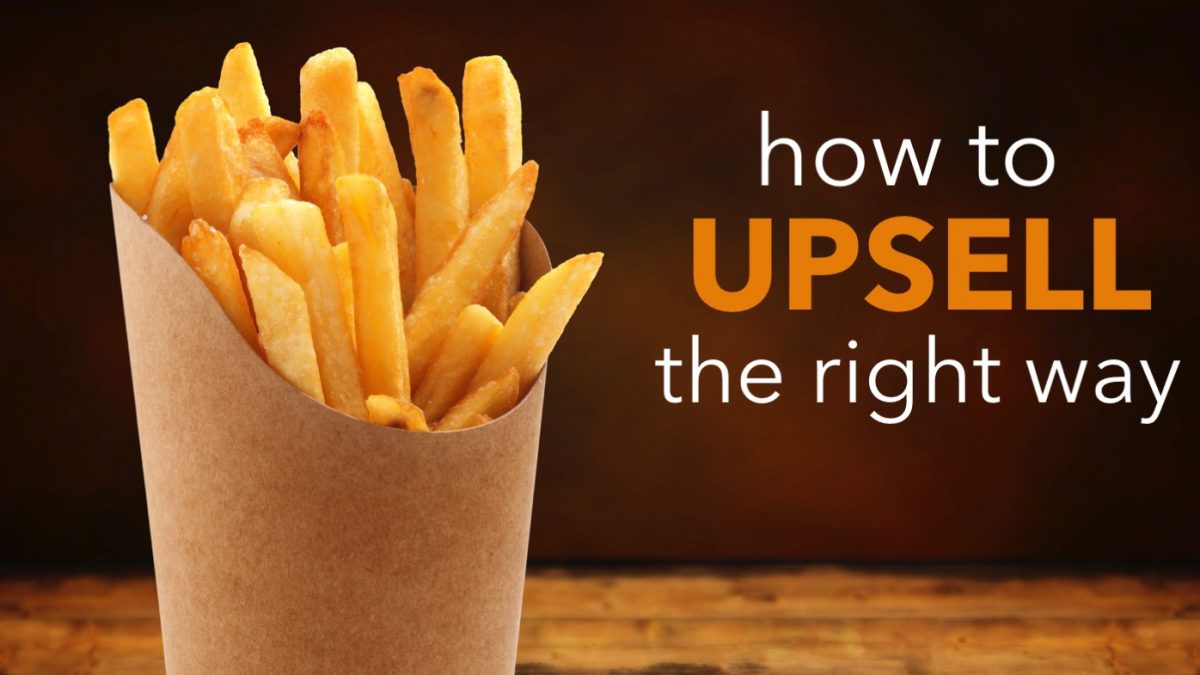One of the quickest ways to increase revenue is upselling. Unfortunately, it’s not always executed well resulting in reduced trust between the buyer and seller. Here’s a better way…
Do you want fries with that? That one question is considered by many to be the single most profitable upsell statement in all of commerce. Probably is. Unfortunately, the wording does not translate well in business-to-business sales.
Upselling has a generally negative connotation in today’s business-to-business marketplace because of the way it’s executed. It comes across as self-focused on the part of the seller. This is largely due to the words used by the salesperson. The upsell comes across as – I’m trying to get more money from you; instead of the way it should be – I’m trying to provide you with more value.
So, what exactly is upselling?
Upselling is the mutually beneficial process of elevating value for the buyer and revenue for the seller through add-on products and services to the original transaction.
If upselling is so profitable for salespeople, then why do so many business-to-business (B2B) upsell attempts fail? By not wording upsell questions correctly.
The most common upsell questions have three (3) traits. They are self-focused, closed-ended and product/service specific. There is very little value communicated to the buyer. However, consultative upsell questions also have three (3) traits, but are better worded. They are customer-focused, open-ended and benefit specific.
https://www.youtube.com/watch?v=lbqYokPsvKM
Here are a few examples of the same upsell questions worded both ways:
Example #1
- Common: Do you want to include our data protection plan?
- Consultative: How are you protecting your data from fire, flood or theft?
Notice the clarity of the consultative question where it personalizes the real-world causes for losing data (fire, flood, theft). The question helps the buyer see and feel the tragic impact of losing their data to one or more of these legitimate possibilities.
Example #2
- Common: Would you like to include our technical support program?
- Consultative: How important is it for you to have fixed monthly investment for your tech support to extend the life of your equipment?
In this example, the consultative question focuses the buyer on fixed costs and extending the life of the equipment – both are priorities for the buyer. The focus shifts away from the tech support service to the benefits the program offers. Wording it this way solicits a more business-focused discussion, which leads to the upsell.
Example #3
- Common: Do you prefer the extended warranty for 2 additional years?
- Consultative: How much will it impact your business in labor cost and client revenue if your system crashes?
In this final example, we see the consultative question focusing on the effects of the buyer’s reputation and lost revenue without purchasing the extended warranty. The common version of the question will solicit more defensive questions from the buyer – Do I really need this? Is the sale rep just trying to sell me something?
Upsell questions should be loaded with value. They should be worded in a way to position you as a trusted expert with the customer’s best interest at heart – not just your wallet. Focus on the customer by the words you use in your upsell questions. If not, you inhibit your customer from receiving maximum value. And you’re leaving money on the table.

